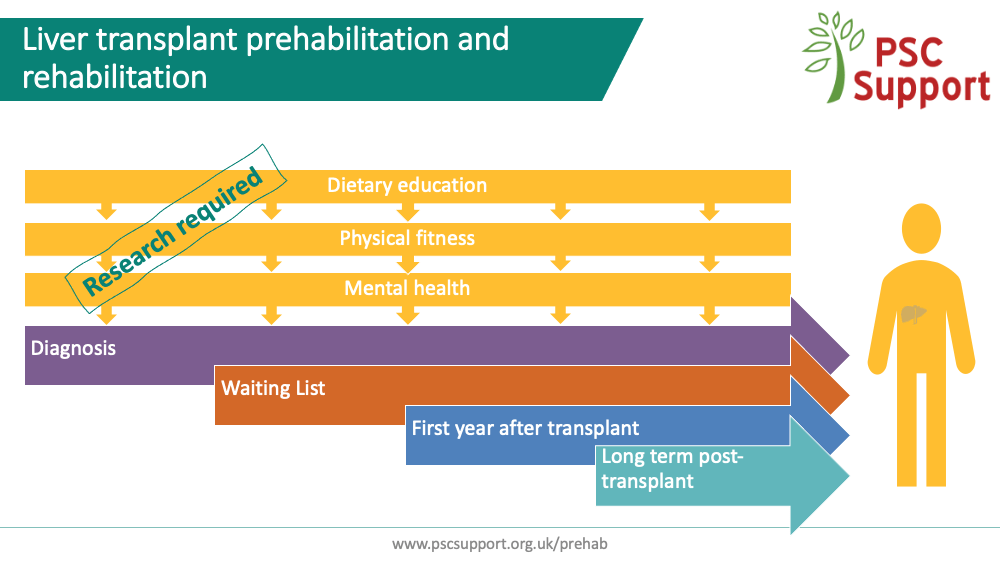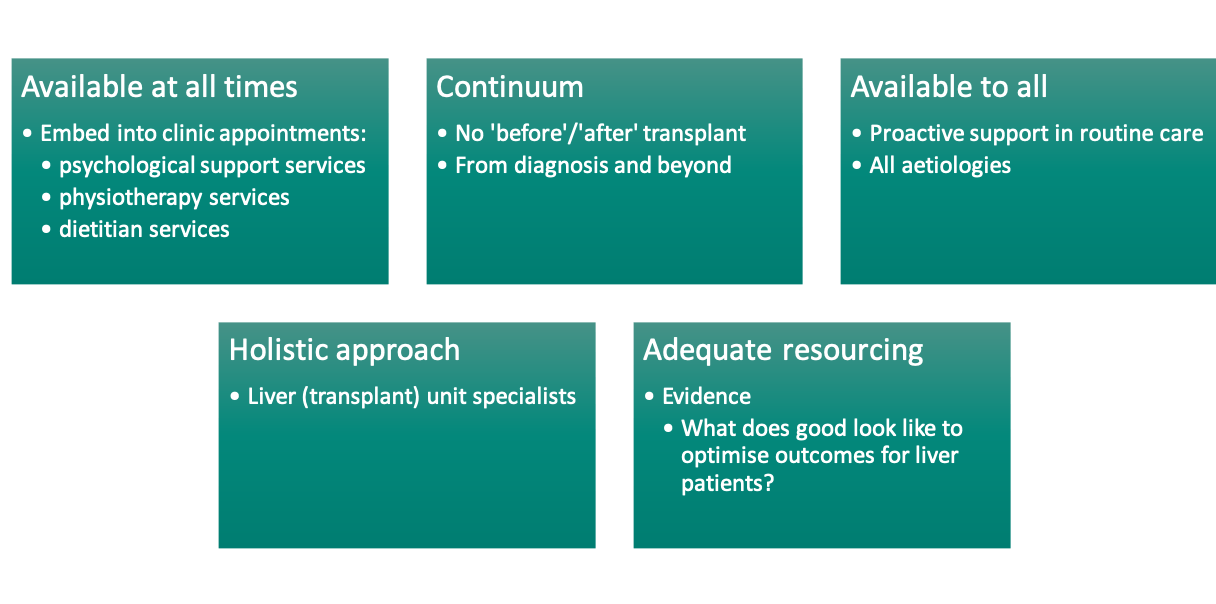Improving Services for Liver Transplant Patients
Wider, longer-term services needed for liver transplant patients

In February 2020, PSC Support conducted a survey to find out what sort of care is important to people having liver transplants. We found important gaps in service provision and we are working with leading transplant clinicians to improve services for patients before and after liver transplant.
Thank you to everyone who took the time to complete the survey.
The survey report, published today, reveals an urgent need for wider services and support for liver patients before and after transplant.
Key Findings
- Nearly three quarters of respondents said that psychological support was very or extremely important while on the waiting list (75%) and during the first twelve months after transplant (72%).
- Anxiety was experienced by 54% of people on the waiting list, 52% during the first year after transplant and 35% after the first year post-transplant.
- Seven out of ten (69%) people on the waiting list for a liver transplant indicated that they needed psychological support.
- 58% of people who had had a transplant in the previous twelve months indicated that they needed psychological support at this time.
- 84% post-transplant patients said that physical fitness advice was very or extremely important during the first twelve months after transplant.
- Two out of every three (65%) people who had had a transplant didn't know what intensity of exercise was safe or what kind of exercise was safe (63%) during the first year after transplant.
- Two thirds (69%) of people who were on the waiting list said they needed help to stay fit enough for transplant while on the waiting list.
- Three-quarters (75%) said they needed help during the first year after their transplant to regain a good level of fitness.
- Most said specific dietary advice (83%) was extremely or very important while on the waiting list (83%) and during the first year after transplant (85%).
- A third (32%) of those who had had a transplant said they felt pressured to return to work. Two out of three cited financial reasons (67%) and pressure from themselves (61%) for returning to work before being physically and mentally ready.
Recommendations
There is no doubt that excellent support and advice before and after liver transplant in the UK is available, but this is not universal. Comments from survey respondents praised staff in transplant units for their dedication and efforts for patients.
We are calling for the provision of psychological, dietary and physiotherapy services to be embedded into routine care and made available to all liver transplant patients, from the moment they are assessed for transplant, and continuing into the long term post-transplant.

